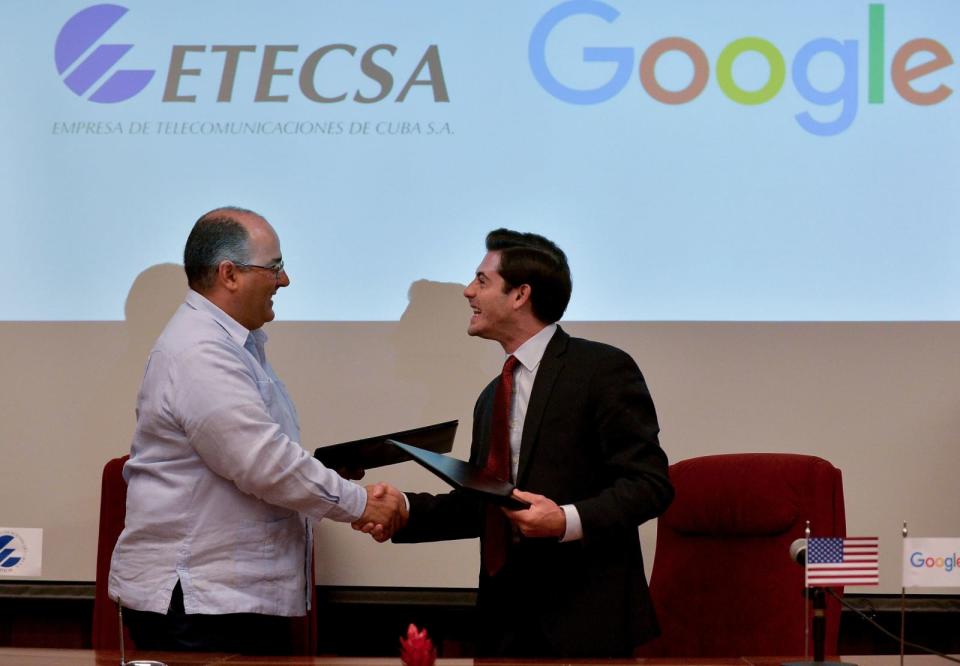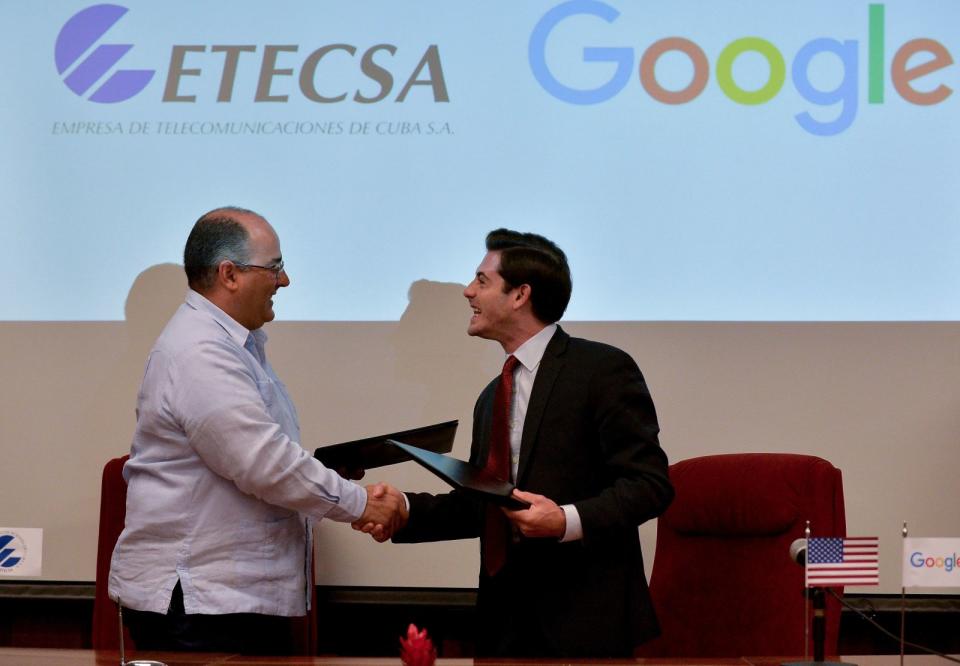Google, Cuba deal could bring faster internet to the island
First, Cuba will need to install a new undersea fiber-optic cable.
Today, Google signed a memorandum with Cuba's telecom monopoly ETECSA to create a cost-free connection between the two networks. Doing so will boost Cuba's internet speeds, but this peering agreement comes with a catch. Cuba will first need to install a new undersea fiber-optic cable to physically connect its network with a Google "point of presence." And that could take years.
Once the fiber optic cable is in place, Cuban citizens will have faster access to content hosted on Google servers, and the Cuban government will see cost savings. At the moment, ETECSA must pay third-party fees for passing traffic to sites like YouTube, Google Maps and Google.com.
Google and Cuba have a history of collaboration. Even before US-Cuba relations improved, Google made Chrome freely available throughout the country. In 2016, Obama touted Google's plans to bring internet to Cuba. Shortly after, Google installed local servers to speed up its services, and in 2017, Google became the first foreign internet company to go live on the island.
Considering that Cuba first tested home internet in 2016 and just launched mobile internet nationwide last summer, the country has come a long way in a relatively short span. While there's no proposed timeline for the new fiber optic cable, this agreement does establish a team of engineers to sort through the necessary details and get the project started.
Firma @ETECSA_Cuba Memorándum de Entendimiento con @Google para iniciar negociaciones sobre el servicio de intercambio de tráfico en Internet, que mejorará la calidad de acceso a los contenidos, como parte de la estrategia de #Cuba para el desarrollo y la informatización. pic.twitter.com/uHQ7hjpINX
— ETECSA (@ETECSA_Cuba) March 28, 2019


